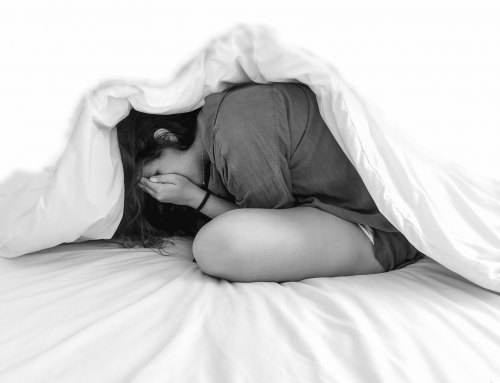When an individual acquires a physical disability it can be potentially life changing, depending on the nature of the disability. This can be a very stressful time, both if the disability is known to be permanent or if the extent to which the injury will heal is unknown. Any illness or disability that reduces our ability to physically function normally can be detrimental to our well-being and possibly lead to mental illness. Individuals with a newly acquired physical disability, may experience multiple loss in relation to their identity. These can include loss of independence, body integrity and mobility, possible loss of pre-existing roles in relation to their job, social relationships and recreational activities. This new reality can be frightening and overwhelming, common psychological responses to a newly acquired disability are shock, anxiety, denial, depression, internalized anger, externalized anger. In cases of permanent disability the most desirable outcome is, having worked through this chain of responses the individual is able to acknowledge and accept their disability; making it possible to bring about the necessary adjustments to lead a meaningful life and reintegrate into society. However, some individuals struggle to ever accept their disability and new reality.
Mental and physical health are intrinsically connected, physical illness can create mental illness and vice versa. Depression is the most common mental illness experienced by individuals that have acquired a physical disability, it is easy to get stuck into a vicious cycle of negativity. A physical disability often requires rest to heal, therefore reducing our exercise and activity levels. A reduction in mobility can reduce our independence and prevent us from leaving our home, which can lead to isolation. We may experience boredom, which can lead to comfort eating and putting on weight, making us feel less than good about ourselves, or we may have lost our appetite and experience reduced energy levels, leaving us feeling tired and rundown. Both can lead to a loss of confidence and possible withdrawal from friends and family. We may turn to, or increase our alcohol consumption, smoking and/or drug abuse to help deal with the emotional pain, boredom or worry. Eventually we can lose our motivation to perform even everyday tasks such as personal hygiene.
Research has demonstrated that attitudes influence our behaviour and therefore affect our well-being, physical and mental health. Our attitude to life and situations is strongly associated to our thoughts, beliefs, moods and emotions and is very influential on our physical health. It is how we evaluate our lives and everything around us, including situations, experiences, objects, ideas and people. If our attitude is negative, we are likely to think and behave in a negative way and therefore increase the level of stress we experience in relation to the focus of our negativity. Stress is associated with depression, anxiety, aggression and low self-esteem; which all increase the risk of mental illness. However, an optimistic attitude has been highly correlated with good physical and mental health. Research by Wrosch and Scheier (2003) found that optimistic patients having just undergone aortic coronary bypass surgery, made a quicker clinical recovery and return to their normal daily routine than pessimistic patients.
The good news is that we can change our attitudes, which in turn can change our beliefs, moods, thoughts, well-being and health…everything is connected. Individuals who make a full recovery from their disability tend to, remain positive, regardless of concerns and worries, believing that a full recovery may be possible; even if it is slow and possibly painful. An optimistic outlook helps to ensure that setbacks don’t knock them down for long. They are more accepting and adaptive to their situation. For example if they have become house bound, they may somehow put the time to good use or do things they don’t normally have time for, such as reading, or learning about something new. Often progress and recovery from a physical disability can be slow, patience is necessary to prevent further injury by learning and respecting one’s own physical limitations. Determination plays a significant part in healing, each achievement, no matter how small, is another step towards full recovery. Following medical and professional advice maximises recovery. Reaching out to friends and family for support and companionship helps prevent isolation. And those that don’t make a full recovery, believe that they can still have a meaningful life, but that it will be in a different way.
By Mia Ford, honorary psychology assistant
REFERENCES:
Conversano et al. 2010. Optimism and Its Impact on Mental and Physical Well-Being. [ONLINE] Available at: https://www.ncbi.nlm.nih.gov/pmc/articles/PMC2894461/. [Accessed 06 September 2010].
Psarra and Kleftaras. 2012. Adaptation to Physical Disability: The Role of Meaning in Life and Depression. [ONLINE] Available at: https://www.ejcop.psychopen.eu/article/view/7/17. [Accessed 06 September 15].
Highland Users Group. 2008. The Views of HUG on the relationship between physical and mental health and what can keep up healthy. [ONLINE] Available at: www.rcpsych.ac.uk/healthadvice/viewpoint/mental physicalhealth.aspx [Accessed 06 September 15].
Boundless Psychology. 26 Aug. 2015. Attitude and Health. [ONLINE] Available at: https://www.boundless.com/psychology/textbooks/boundless-psychology-textbook/stress-and-health-psychology-17/behaviours-that-impact-physcial-and-mental-health-88/attitude-and-health-336-12871/ [Accessed 06 September 15]






